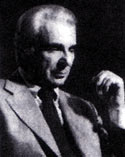 |
|
|
The Unique Radiant Light of Greece |
|
 by Christopher Xenopoulos Janus |
The light of Greece, is unique. Many authors have written that the Golden Age of Greece was made possible in part because of Greece's special radiant light. In Greece you don't see things as they appear-you see things as they are. Greece's light gives things meaning. Almost every author who has written about Greece writes about its unique light. In this essay I am quoting what several authors have said about Greek light. What makes Greek light in general so special? The combination of small masses of land against; the Aegean Sea, high island vantage points and steep cliffs which lets the observer perceive the light falling from the sun while more light simultaneously reflects back up off the sea, the neutral brown colors of the landscape, especially in summer, and the sparkling of the white of the simple Cycladic houses. It's magic, and it's not to be found in any guidebook or monitor screen: it must be seen to be believed. |
|
For how powerfully must a naturally beautiful and delightful land affect the soul when the resplendent skies above it are filled with the godlike forms of Greek poetry, and it consecrated soil, is drenched with the noblest blood in the history of the human race. Over twenty years went by before Gerhart Hauptmann, quite as well grounded in Homer as Gregorovirus, described his first encounter with the light of Greece-in Corfu in 1907. "When I opened the window this morning," he writes, "the sun was already high in a cloudless sky. The whole scene-the streets, the roofs of the town, the sky, fields, olive groves and distant mountains - lay spread out before me a light which was almost white. As I emerged from the hotel, I had to shut my eyes, and for a long time sought my way blinking as I strolled through the northern district." "Whoever has seen Greece will carry forever in his heart the remembrance of a miracle of light. No blinding glare, no blazing colors, but an all-pervading, luminous brightness which bathes the foreground in a delicate glow, yet makes the furthest distances clearly visible. " That is how Walter F. Howe, author of "The Homeric Gods," opened his news study of Apollo, after his visit to Greece in 1924. Jules Girrd, the French Hellenist was far in advance of his generation when, having lived in Athens from 1848 to 1851, he recalled the special qualities of Attic light, the light of the Athenian landscape. "The brilliance of Athenian eloquence," he writes "Is like that of the light which radiates them in those wonderful hours which are lit by the earliest and last beams of the sun; nothing could be more brilliant, yet nothing could be milder. It touches and permeates everything and suffering no resistance. At those hours the Athenian sunlight plays all visible objects, yet it bathes their outlines as gently as the blue ripples of the bay lapping the shores of the Phaleron. At such moments all is luminous and transparent, even the shadows of mountains; but all color-values are preserved, every surface is clearly distinguishable, all forms are sharp and clear, each object is revealed to us in detail, showing its individual range of tones from the most vivid hues to the most ethereal shades, And the parts combine in a relationship where all is true, harmonious, and imbued with spirit." Greece remains a land of the gods, not only because of it monuments and traditions, but in its whole reality, which to us, at our stage of experience, is almost as accessible as to the, ancient Greeks themselves. The Light of Greece is so startling that Henry Miller was moved to write: "The Colossus of Maroussi" -a celebration of the uninhibited spirit...In the dazing sunlight, a detail stands out in hair-raising exactitude such as one sees in the paintings of the very great or insane. Everything is delineated, sculptured, etched..You see everything in its uniqueness-a man sitting on a road under a tree...Whatever you look at you see as if for the first time. |
|
(Posting date 21 September 2006) Mr. Janus is the author of numerous articles appearing on HCS. Readers are invited to view: "The Drinking Parties--Symposiums in Ancient Greece" and "The Greatest Greeks of Antiquity" as well as other fine articles by him under our archival section bearing his name: Janus Articles. |
|
|
|
|
2000 © Hellenic Communication Service, L.L.C. All Rights Reserved.
http://www.HellenicComServe.com |
|
